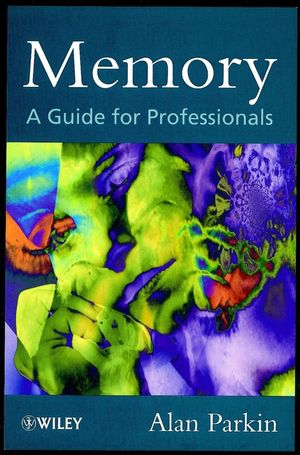Memory: A Guide for ProfessionalsISBN: 978-0-471-98302-6
Paperback
176 pages
February 2000
 |
||||||
In the course of their professional lives many people need to
understand facts about human memory. For example, a client who is
suddenly "remembering" being sexually abused as a child may be
referred to a social worker. A lawyer may be confronted with a
client who claims "amnesia" when charged with a crime. A speech
therapist may be asked to treat a patient who has memory problems.
In such situations as these the professional could benefit from a
concise and uncluttered account of human memory which deals
directly with all the relevant issues.
Written by an internationally recognised expert in the field, this unique book provides an accessible review of the way human memory works for day-to-day use by many professional. The book begins with an overview that explains the basic facts about memory and provides essential information about remembering and forgetting. The early chapters cover the main theories on memory and relate them specifically to practical disorders. Sections in subsequent chapters deal with
* memory loss
* how memory is measured and how to interpret reports
* legalistic aspects of memory
* the nature and reliability of child memory
* changes in memory across the life-span
* dementia
* hypnosis
* false memory
* memory therapy.
Each chapter ends with a short bullet-point summary that draws all the issues together.
Memory: A Guide for Professionals is an essential practical resource for a wide-range of professionals including socio-legal professionals, social workers and therapists. It is a useful introductory guide for students on professional academic courses and to all those with an interest in how human memory works.
Written by an internationally recognised expert in the field, this unique book provides an accessible review of the way human memory works for day-to-day use by many professional. The book begins with an overview that explains the basic facts about memory and provides essential information about remembering and forgetting. The early chapters cover the main theories on memory and relate them specifically to practical disorders. Sections in subsequent chapters deal with
* memory loss
* how memory is measured and how to interpret reports
* legalistic aspects of memory
* the nature and reliability of child memory
* changes in memory across the life-span
* dementia
* hypnosis
* false memory
* memory therapy.
Each chapter ends with a short bullet-point summary that draws all the issues together.
Memory: A Guide for Professionals is an essential practical resource for a wide-range of professionals including socio-legal professionals, social workers and therapists. It is a useful introductory guide for students on professional academic courses and to all those with an interest in how human memory works.



